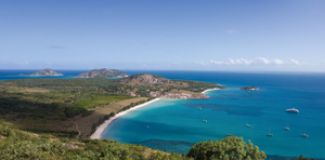
English common law and equity were formerly adapted from New Zealand through the Cook Islands Act 1915, prior to the Cook Islands acquiring self-governance in 1965. The common law concept of a trust has been in the Cook Islands for about a century. However it was the Cook Islands who invented the modern asset protection trust through its innovative legislation, the International Trusts Act 1984, which has been substantially embraced by many offshore finance jurisdictions. The Hague Convention on Trusts does not apply in the Cook Islands.
Seeking to capitalize on the experience and success of protection afforded by Cook Islands trusts, the Cook Islands encapsulated asset protection features it was known for with the best features in foundation law from other jurisdictions and introduced the foundation as a financial product in 2012. Although they are different wealth preservation vehicles, both the Cook Islands’ trust and foundation share many important aspects that seek to preserve wealth and facilitate flexible wealth planning.
The Cook Islands has traditionally been known for asset protection particularly since it led the offshore finance industry with the invention of the modern asset protection trust. However, Cook Islands entities, namely international trusts, foundations, international companies, limited liability companies, limited partnerships, and captive insurance, can be structured into any wealth planning whether it is asset protection or asset succession focused. The tax neutrality of the Cook Islands further enhances its attractiveness in wealth planning structures. In this day and age, the best wealth planning incorporates both asset protection and asset succession, which is available through Cook Islands entities.
Trusts are presently the preferred offshore financial structure in the Cook Islands because they have been around decades longer than foundations. Trusts were developed for common law jurisdictions that are familiar with the concept of bifurcating ownership of property, such as the United States. Foundations, which originated from civil law jurisdictions, only recently became available in the Cook Islands in response to demands in Asian markets. Although it is too early to tell if the demand for foundations in the Cook Islands will outpace the demand for trusts, it is reasonable to expect that the demand for trusts will increase in Asian markets as wealth levels increase in rising societies and economies that are becoming more familiar and integrated with western common law jurisdictions.
The Cook Islands has a widely recognized reputation for effective wealth protection. Those who include the Cook Islands in their wealth planning also recognize that the Cook Islands is a jurisdiction with 1) well-crafted legislation, 2) a very high ranking for regulation of its financial industry, 3) a strong judiciary centred around high-calibre New Zealand judges, 4) an ideal time zone between Asia and the Americas, 5) outstanding service by experienced professional service providers, and 6) a supportive government.
Confidentiality and privacy provisions are integrated into key legislation, which is important to a jurisdiction whose finance industry tailors to high net worth persons and the world’s elite.
The costs of Cook Islands structures are comparable and competitive to other offshore jurisdictions. Its unique position also benefits from its free association relationship with New Zealand and the strength of the New Zealand dollar while maintaining its independence to support, promote, and protect the finance industry. Seen by many as the gold standard of asset protection, the Cook Islands offers confidence and ease of mind as a South Pacific bridge facilitating first-class wealth planning.
Contributed by Tamatoa Jonassen, CEO, Cook Islands Financial Services Development Authority